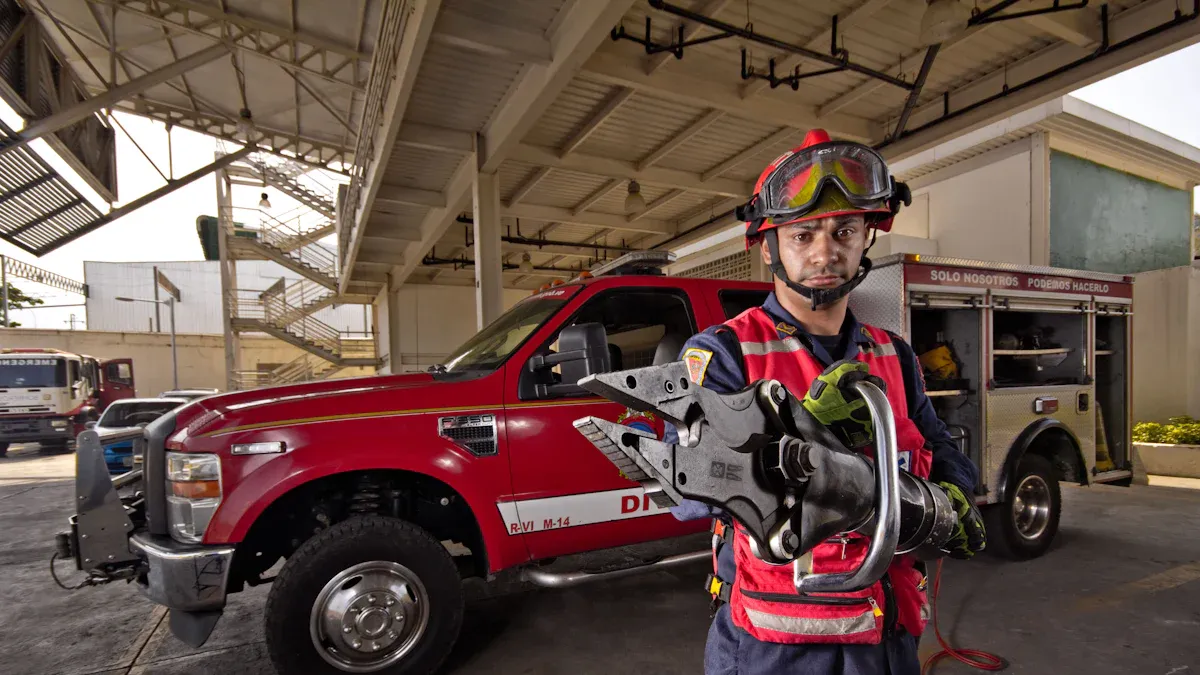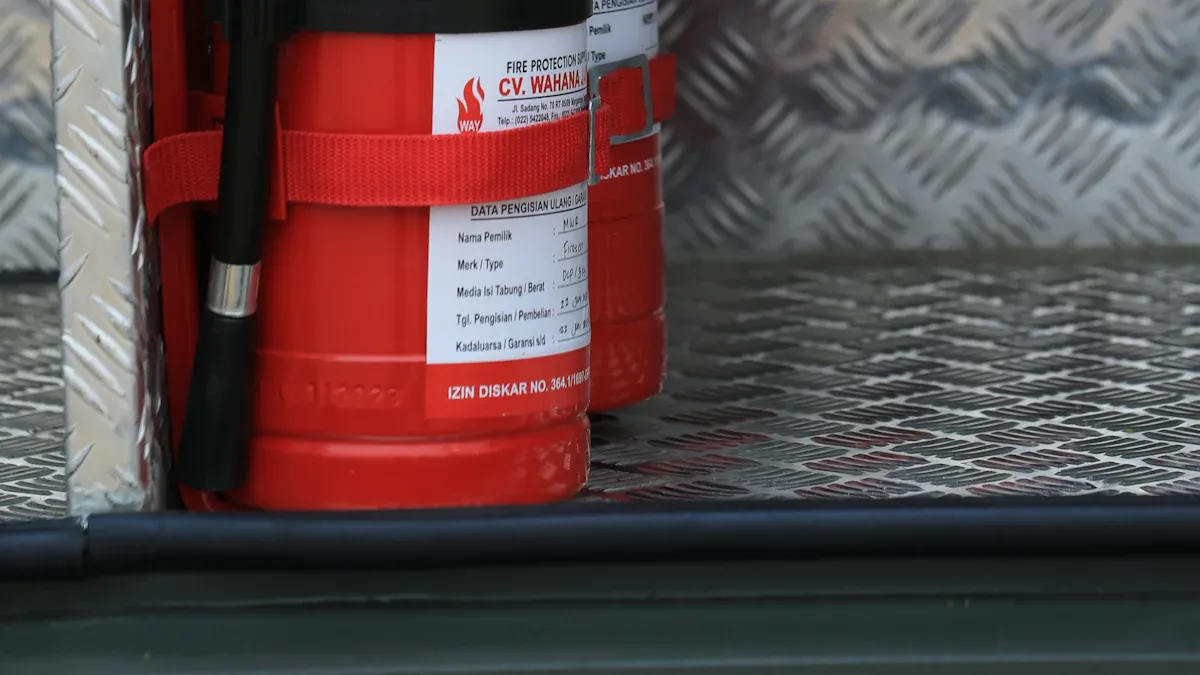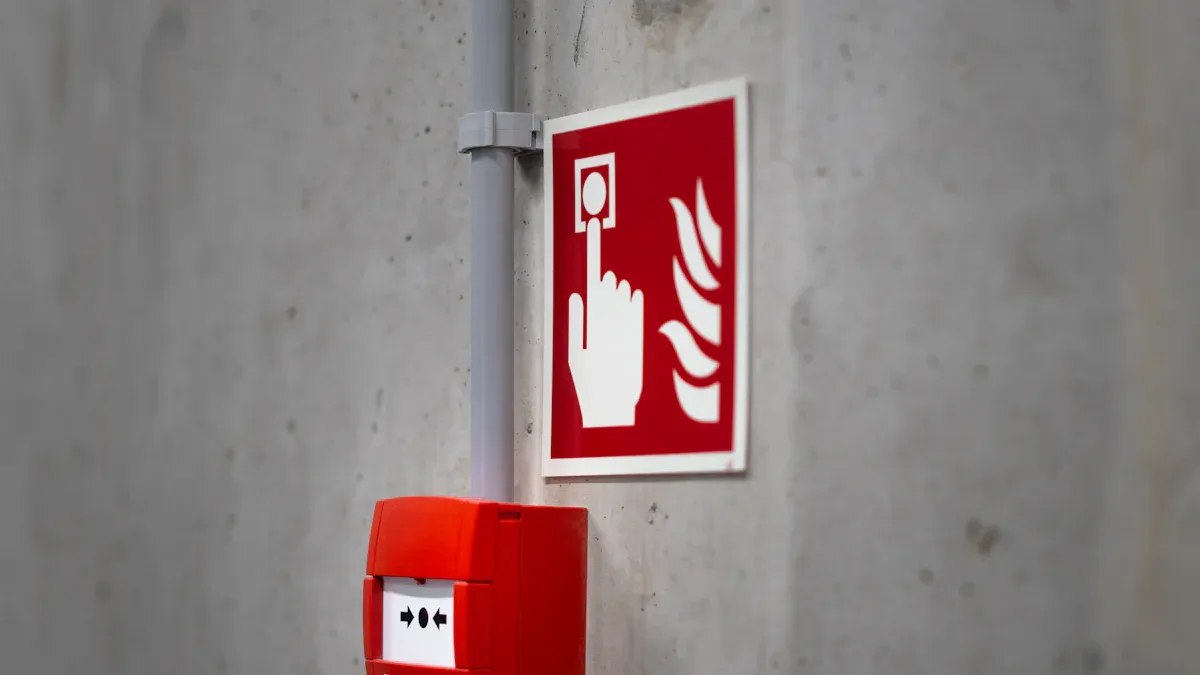How Nitrogen Generators Enhance Fire Protection Systems

Nitrogen generators play a crucial role in fire protection systems. They help prevent rust and corrosion, which can lead to significant issues and increased repair costs. By utilizing nitrogen generator fire protection, your fire protection systems can last longer and operate more efficiently. This intelligent choice safeguards your equipment and ensures it functions optimally when you need it most.
Key Takeaways
Nitrogen generators help stop rust in fire protection systems. This makes them last longer and work better.
Using nitrogen technology can save companies about $18,000 each year. This is because it cuts down on repair costs and replacements.
Nitrogen generators use fewer harmful chemicals. This makes fire protection safer for the environment.
With nitrogen systems, regular maintenance can drop by up to 98%. This means fewer repairs and longer-lasting equipment.
Picking the right nitrogen generator improves how well the system works. This ensures fire protection systems are ready when needed.
The Corrosion Problem in Fire Protection Systems
Corrosion is a big problem for fire protection systems. Knowing what causes it can help you protect your systems.
Causes of Corrosion
Many things can cause corrosion in fire protection systems. Here are some main causes:
Evidence Type | Description |
|---|---|
Galvanized steel pipes in dry systems create high zinc levels in water, which is a harmful metal. | |
Corrosion Mechanism | Water left in galvanized pipes causes leaks within 2-3 years after installation. |
Regulatory Standards | Laws ban galvanized pipes in dry and preaction fire sprinkler systems because of corrosion. |
Corrosion can happen in different ways. For example, over 70% of dry sprinkler systems have serious corrosion within 12.5 years. Also, up to 90% of fire sprinkler corrosion comes from chemical reactions. Microbiologically Influenced Corrosion (MIC) adds to this, causing 10% to 30% of corrosion issues.
Impact on System Performance
Corrosion can hurt how fire protection systems work. Here are some effects to know about:
Corrosion causes leaks and rust, which can lower fire safety.
It often goes unnoticed, so regular checks and maintenance are important.
Corrosion leads to expensive repairs, replacements, and downtime, affecting business.
To reduce these problems, think about using nitrogen in dry pipe or preaction systems. This can help your systems last longer and cut down on corrosion. Also, improving water quality and using chemicals can help.
By knowing the causes and effects of corrosion, you can protect your fire protection systems and make sure they work well when needed.
How Nitrogen Generators Work

Nitrogen generators are very important for fire protection systems. They replace oxygen in fire sprinkler systems with nitrogen. This change helps to lower the chance of corrosion. Here’s how nitrogen generation happens:
Mechanism of Nitrogen Generation
Nitrogen generators use a fill and purge breathing method. This process works automatically while your system is running. It removes oxygen and gets a nitrogen level of 98% in just 14 days. Here are some key points about how this helps your fire protection systems:
Corrosion Prevention: Using 98% nitrogen can make dry fire sprinkler systems last 5.3 times longer than using compressed air.
Membrane Separation Technology: ECS nitrogen generators use this method to create nitrogen from compressed air. The system works at a low pressure of 3-5 psi, which helps with gas cycling and mixing.
Types of Nitrogen Generators
There are different types of nitrogen generators, each with its own benefits. Here’s a comparison of some common types:
Type of Nitrogen Generator | Advantages | Applications |
|---|---|---|
Membrane Nitrogen Generators | Small size, easy to use, low upkeep | Food and drink, electronics |
Pressure Swing Adsorption (PSA) | Very pure nitrogen, can adjust to different purity levels | Healthcare, chemical making |
Cryogenic Nitrogen Generators | Extremely pure nitrogen, needed for special uses | Chemical processes, advanced electronics |
Choosing the right nitrogen generator can make your fire protection systems more reliable. By knowing how these systems work and the types available, you can make smart choices that improve safety and efficiency.
Benefits of Nitrogen Generators in Fire Protection

Nitrogen generators have many great benefits for fire protection systems. They can help you save money and protect the environment. Let’s look at these benefits closely.
Cost-Effectiveness
Using nitrogen generators in your fire protection systems can save you a lot of money. Here’s a look at the costs of regular fire protection systems compared to those with nitrogen generators:
Description | Cost (per sf) | Total Cost | Annual Savings | ROI (Years) |
|---|---|---|---|---|
Typical Cost of Full System Replacement | $3.00 - $5.00 | $480,000 | 1.9 | |
Cost of Nitrogen Implementation | $0.20 - $0.40 | $34,850 | ||
Cost of Wet Pipe Nitrogen Inerting Systems | $12,000 | |||
Total Repair Cost for Pinhole Leaks | $49,929 |
As shown, using a nitrogen generator fire protection system costs much less than replacing the whole system. You can save about $18,000 each year by stopping corrosion and leaks. The return on investment (ROI) for nitrogen systems is great, often in just 1.9 years. This means you can keep your investment safe and make sure your fire protection systems work well without spending too much.
Environmental Benefits
Nitrogen generators also help the environment. They cut down on chemical treatments and waste, which helps create a cleaner future. Here are some key environmental benefits:
Reduced Chemical Use: Regular fire protection systems often need chemicals to fight corrosion. Using nitrogen means you don’t need these harmful products.
Lower Carbon Footprint: Nitrogen generators work well, using less energy. This results in a smaller carbon footprint for your fire protection systems.
Sustainable Practices: Using nitrogen generators supports sustainable practices. You help save natural resources while keeping your facilities safe.
Adding nitrogen to your fire sprinkler systems not only boosts safety but also shows environmental care. You can feel good knowing your choices help the planet.
By learning about the cost-effectiveness and environmental benefits of nitrogen generators, you can make smart choices that improve your fire protection systems while being careful with your budget and the environment.
Enhancing Longevity of Fire Protection Systems
Maintenance Reduction
Using nitrogen generators in fire protection systems cuts down on maintenance. They can lower corrosion by up to 98%. This helps you avoid many repairs. Here’s how it works:
Fewer Repairs: Less corrosion means fewer leaks and failures. This helps your equipment last longer.
Extended Life Expectancy: With less corrosion, your systems last much longer. You won’t need to replace them often, saving money over time.
Evidence Type | Description | Impact on Longevity and Performance |
|---|---|---|
Corrosion Reduction | Nitrogen generators can lower corrosion by up to 98%. | Leads to fewer repairs and longer life. |
Cost Savings | Longer life means you replace systems less often. | Results in savings over time. |
Improved Reliability
Reliability is very important for fire protection systems. Nitrogen generators make them more reliable in many ways:
Lower Risk of Failure: By removing oxygen, nitrogen lowers the chance of fire and explosions. This is key in places where safety matters most.
Consistent Performance: The IntelliGen™ Series of Nitrogen Generators makes nitrogen on-site with over 98% purity. This high purity slows corrosion, helping systems last longer and reducing maintenance costs.
Adding nitrogen to fire protection systems not only makes them more reliable but also ensures they work well when needed. By choosing nitrogen generator fire protection, you can feel secure knowing your systems are strong and dependable.
Nitrogen generators help fire protection systems a lot. They stop rust, which means less money spent on repairs. Using nitrogen generator fire protection keeps your systems working well and safe. Think about how these generators can help your building. Choosing nitrogen technology not only keeps your equipment safe but also makes the environment safer for everyone.
FAQ
What is a nitrogen generator?
A nitrogen generator makes nitrogen gas from compressed air. It takes out oxygen in fire protection systems. This helps reduce rust and makes systems last longer.
How does nitrogen prevent corrosion?
Nitrogen replaces oxygen in fire sprinkler systems. With less oxygen, there is much less rust and corrosion. This helps your systems last longer.
Are nitrogen generators expensive to maintain?
Nitrogen generators are affordable to keep up. They need very little maintenance compared to regular systems. This saves you money on repairs and replacements over time.
Can I install a nitrogen generator myself?
Some systems can be installed by yourself, but it’s better to hire a pro. A professional installation makes sure everything works well and is safe for your fire protection systems.
How long does it take to see results from nitrogen generators?
You should see a big drop in corrosion within weeks after installation. Most systems reach 98% nitrogen levels in about 14 days, giving quick protection.
